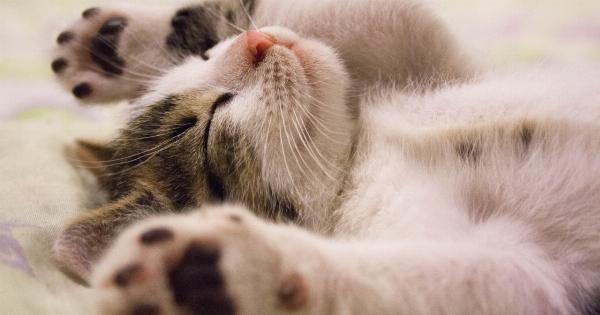Street cats, also known as feral cats, are a common sight in many urban areas around the world.
These cats have learned to survive on their own, navigating through the challenges presented by busy streets, unpredictable weather conditions, and limited access to resources. However, their health often remains neglected, as they lack regular veterinary care and access to nutritious food.
In this article, we will delve into the significance of nourishing street cats’ health and explore why it is essential for the well-being of these resilient feline creatures.
Disease Prevention
One of the key reasons why nourishing street cats’ health is crucial is disease prevention. Street cats face numerous health risks due to exposure to the elements, crowded living conditions, and encounters with other animals.
Without proper nutrition, their immune systems become compromised, making them more susceptible to a variety of diseases. By nourishing street cats with balanced and nutritious food, we can help strengthen their immune systems and reduce the risk of illnesses.
Population Control
Another significant aspect of maintaining the health of street cats is population control. Street cats are known for their remarkable ability to reproduce quickly, leading to overpopulation in many areas.
This overpopulation can result in increased competition for resources, the spread of diseases, and an overall decline in the cats’ quality of life. By providing regular food and ensuring that cats’ health needs are met, we can support responsible population control efforts, such as neutering and spaying programs.
Improved Quality of Life
Nourishing the health of street cats leads to an improved quality of life for these animals. Regular access to nutritious food not only fulfills their nutritional requirements but also boosts their overall well-being.
Proper nourishment improves cats’ physical condition, promotes healthy weight maintenance, and enhances their energy levels. It also contributes to the cats’ mental well-being, as a well-fed cat is generally happier, more content, and less prone to behavioral problems.
Reduced Predatory Behavior
Street cats often resort to hunting and scavenging for food to satisfy their hunger. This behavior can have negative consequences for local wildlife populations and ecosystems.
By providing street cats with regular meals, we can help reduce their predatory behavior and minimize the impact on the natural environment. Moreover, a well-fed cat is less likely to engage in destructive behaviors, such as digging through garbage or preying on smaller pets, further promoting harmony within communities.
Human-Animal Bond
Street cats play a significant role in forming connections between humans and animals. These cats, despite their often-tough exterior, can become loving companions when given the chance.
By nourishing their health and providing care, we create opportunities for human-animal bonds to develop. Caring for street cats not only fulfills our responsibility as stewards of animal welfare but also contributes to our own mental well-being.
The unconditional love and gratitude received from a cared-for street cat can bring immense joy to individuals and communities.
Preventing the Spread of Diseases to Humans
Ensuring the health of street cats also has implications for human health. Certain diseases common in street cats, such as toxoplasmosis and rabies, can pose threats to human populations.
By nourishing the health of street cats, we decrease the likelihood of these diseases spreading to humans through direct contact or contaminated environments. By taking responsibility for the well-being of street cats, we create a healthier and safer environment for both animals and humans.
Community Harmony
Nurturing the health of street cats contributes to community harmony. In many neighborhoods, street cats become an integral part of the local fabric, and their presence is often cherished.
By nourishing their health, we show our respect for these animals and reinforce the values of compassion and empathy within our communities. Additionally, when street cats are well-fed and healthy, they are less likely to engage in disruptive behaviors, reducing conflicts with residents who may otherwise view them as nuisances.
Awareness and Education
By focusing on the health of street cats, we create opportunities for raising awareness and educating the public about the importance of animal welfare.
When communities witness the positive impact of nourishing street cats’ health, more people are likely to get involved in efforts to help these vulnerable animals. Through education, we can disseminate information about responsible pet ownership, the benefits of spaying and neutering, and the role of proper nutrition in supporting the well-being of all cats, including street cats.
Collaborative Efforts
Nourishing the health of street cats is not a task that can be accomplished alone. It requires collaboration between individuals, communities, and organizations to bring about meaningful change.
By working together, we can establish feeding stations, organize spaying and neutering programs, and create partnerships with veterinary clinics and animal welfare agencies. Such collaborative efforts can have a lasting impact on the health and well-being of street cats, paving the way for a more compassionate society.
Conclusion
As we have explored in this article, nourishing the health of street cats holds immense importance for various reasons.
From disease prevention and population control to fostering community harmony and raising awareness about animal welfare, the benefits are far-reaching.
By providing regular nutritious meals, promoting responsible population management, and advocating for the well-being of street cats, we can contribute to creating a world where all feline creatures, regardless of their living situations, can thrive and enjoy their lives to the fullest.



























